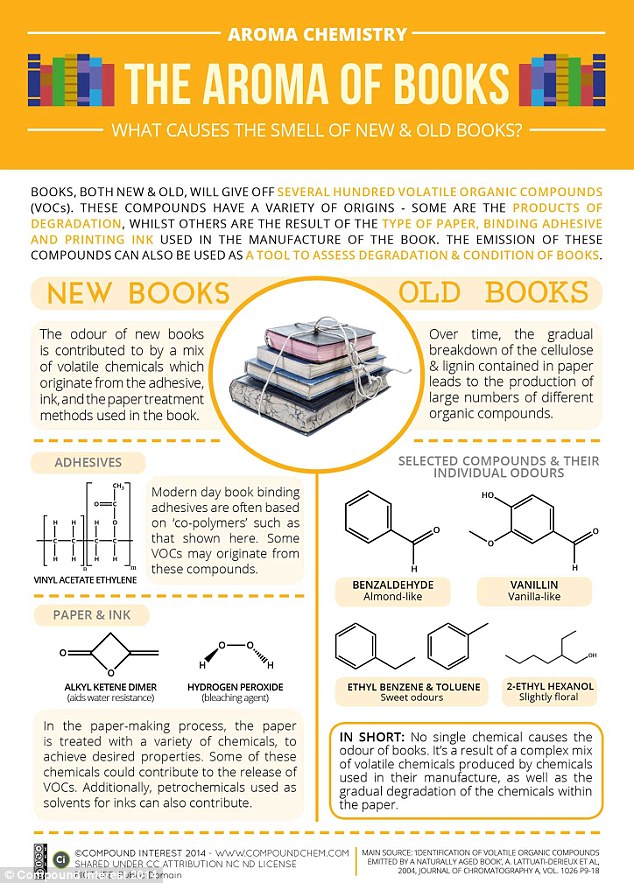Researchers at University College London’s Institute for Sustainable Heritage conducted an experiment asking how participants felt about a number of different aromas. Among them, of course, was an old book. Their findings were published in Heritage Science (https://heritagesciencejournal.springeropen.com/articles/10.1186/s40494-016-0114-1).
Without knowing what they were smelling, participants overwhelmingly described the smell of books as being like chocolate. The second most common scent was coffee. According to the researchers, aging paper has some of the same chemical compounds (A.K.A. VOCs) as chocolate and coffee. In that sense, it’s not so surprising participants were able to identify the familiar aroma, especially since most readers are probably friends of chocolate.
Interestingly, when introduced to a room full of books, participants were not consumed by a powerful chocolatey smell. Instead, they mostly described the scent as “woody” and “smoky.
And now a British Chemistry Teacher has created an infographic to explain how and why the scent of antique and new books differ.

Book smell infographic
Old books have a sweet smell with notes of vanilla flowers and almonds, caused by the breakdown of chemical compounds in the paper, while new books smell like they do more because of the chemicals used in their manufacture.
Paper contains cellulose and small amounts of lignin – a complex polymer of aromatic alcohols. Lignin is the sticky resin from the tree which is removed from wood pulp during the paper making process because it has a yellowing effect on the finished paper over time. Some papers contain less lignin than others and because the presence of lignin makes your book smell good, we can now say that some papers will smell better than others.
The paper used in very old books was produced before lignin removing chemicals were widely used, and this explains why these books have a unique woody smell.
More expensive, modern, whiter papers, contain less lignin and do not smell as good in my opinion as off white / creamier book and news paper grades . But don’t take my word for it – each one of us has our own thoughts about what smells good and bad! Why not come to my office and we’ll get some samples out, have a good sniff and you can tell me if you agree!
I think that the smell of a book, particularly a novel, is very important in helping your book to become the complete sensory package that will bring maximum pleasure to your reader.
Remember: The more lignin there is in the paper you use for your book, the better it will smell – particularly over time.
Written by David Exley
David has an Honours Degree in Printing and Packaging Technology and has worked in both technical and sales roles in both the Paper and Printing industries for over 20 years.
Please feel free to contact David if you would like to discuss any of the above or suggest improvements to this blog.
David Exley david@beamreachuk.co.uk





